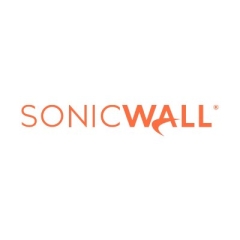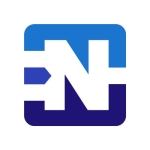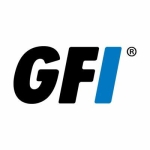What is our primary use case?
Our use cases for SonicWall NSa are the Global VPN and the SSL VPN, because nowadays, everyone prefers to work from home, and prefers to connect from mobile applications to our organization.
What is most valuable?
What's valuable in SonicWall NSa is the ATP (advanced threat protection). It can protect users from malicious links, e.g. those sent to the end user email and is clicked by the end user, who'll be led to a bad website. SonicWall NSa has a Sandboxing service that is very helpful for us, especially when end users accidentally click on malicious links.
Another valuable feature of this solution is that it is very useful for site-to-site VPN connectivity issues.
SonicWall NSa also has very good hardware, e.g. from 2013 to 2021, only one product had a hardware failure, and within 24 hours, they were able to replace that product.
I also love that SonicWall has very good technical support, who are very knowledgeable, provides good suggestions, and they're easy to reach.
What needs improvement?
An area for improvement in SonicWall NSa is that sometimes, we experience bugs when upgrading, so we have to contact their technical support to fix issues.
It would be much easier if this improvement was in place: if the one-time password which is built-in, was provided as an OTP for the administrator logging into the console, so that we'll have a quicker awareness of it, rather than needing to check emails for it. Having a Telegram or WhatsApp bot integrated with the device, for example, will be very helpful for us, so we can instantly take action, without us needing to log into and check our emails, meaning we'll be able to put things right faster.
This may not be possible in SonicWall NSa, but I'm also looking for any kind of controller or device for the Windows server or client, e.g. Windows 11 and Windows 10 from SonicWall NSa itself, so that a security domain or the gateway of the organization would be able to identify the latest update for a product, whether that product is installed or not. This feature would be very helpful, and it's what I'd like to see in the next release.
For how long have I used the solution?
I've been using SonicWall NSa since 2013.
What do I think about the stability of the solution?
SonicWall NSa performs well, but sometimes, there are bugs, so I have to call their support when this happens, and I elaborate on the problem we're facing. Support then takes the diagnostic data, fixes it, then sends back to me the firmware or the setting so I can restore my SonicWall NSa.
What do I think about the scalability of the solution?
SonicWall NSa is easy to scale.
How are customer service and support?
The technical support team for this solution is very knowledgeable. They are able to fix issues. They understand what we are facing and they suggest very good options. They provide us very good support, and on a scale of one to five, I'm giving them a four to a five for technical support.
Which solution did I use previously and why did I switch?
I previously used different solutions, e.g. Sophos and Fortinet, but what I noticed is that I either couldn't find how to contact their technical support, or if I was able to call their technical support, I either get a busy tone, or it takes a long time to speak to someone. As for SonicWall support, I only had to wait 10 minutes to speak to someone, and if they accidentally drop my call, they'll immediately call me, no matter which part of the world I'm in, so I switched to SonicWall NSa.
What about the implementation team?
I deployed SonicWall NSa myself. Deployment was very easy.
Last January 14th, one of my firewalls went down, so we had to replace it, but it was unfortunate that we didn't enable the local backup. At the time, what we had was the factory set up option for the device, so it took me six hours to fix, e.g. applying for the policy site to the site VPN, creating the users, etc. All those processes took a minimum of five to six hours.
I didn't use a vendor or a third party for the deployment of this solution. I only had to call their support if there was something I couldn't understand, e.g. why the traffic wasn't working, etc. For some of the processes, I took notes from their support, while for the rest of the processes, we can do it by ourselves.
What's my experience with pricing, setup cost, and licensing?
SonicWall NSa has two types of license, so the cost would depend on the license.
The advanced license is a bit expensive when compared to the comprehensive license, but when you compare the advanced license to the licensing cost of other brands or competitors, it is expensive.
One good point about the more expensive license for this product it that they provide a hardware guarantee, which means direct replacement, no matter how long you've been using it, whether you've used it for two, three, five, or seven years. You can easily have your device directly replaced if it's having issues with the firewall, software, or hardware, etc. You can get this done as an end user, or as a customer. You just have to fill in and send back the application form for device replacement, provide the serial number and the model number, and that's it. They will replace your device. It's also easy for them to transfer your license to another device. SonicWall NSa is worth the money.
Which other solutions did I evaluate?
I evaluated Sophos and Fortinet solutions.
What other advice do I have?
The firewall products I'm using are SonicWall NSa 3600 and 2400.
We are using the latest version of this solution.
We are using a local backup, and we also enabled for my SonicWall NSa a cloud backup for all devices. We are using six firewalls, so we enabled the flow backup, with the goal of being able to restore immediately, in case of emergency.
This product doesn't require much maintenance. Our company operates 24/7, and we deal with ready-mix concrete. It depends on the production, but SonicWall NSa continuously runs 24/7. Maintenance is done monthly, particularly for upgrading the firmware, or for restarting SonicWall server patches. Maintenance of this product only takes one hour on a monthly basis.
We have 200 end users of SonicWall NSa.
I always recommend this product to my friends and colleagues. My supplier also recommends it. I suggest to them to go for SonicWall NSa, depending on the user, e.g. if you have 100 end users. We pay for the license, for example, 2,200 dirhams, so I can get the license, and also get the SonicWall SOHO device, which is the smaller one.
My rating for SonicWall NSa is seven out of ten.
Which deployment model are you using for this solution?
On-premises
Disclosure: My company does not have a business relationship with this vendor other than being a customer.


















